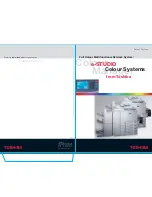
Chapter 33: 802.1x Port-based Network Access Control
392
Section VIII: Port Security
An example of this authenticator operating mode is illustrated in Figure 45.
The clients are connected to a hub or non-802.1x-compliant switch which
is connected to an authenticator port on the AT-9400 Switch. If the
authenticator port is set to the 802.1x authentication method, the clients
must provide their username and password combinations before they can
forward traffic through the AT-9400 Switch.
If the authentication method is MAC address-based, the authenticator port
uses the MAC addresses of the clients as the username and password
combinations. The port accepts and forwards traffic only from those clients
whose MAC addresses have been entered on the RADIUS server and
denies access to all other users.
Figure 45. Authenticator Port in Multiple Operating Mode - Example 1
The next example of the multiple mode in Figure 46 shows two AT-9400
Switches. The clients connected to switch B have to log on to port 6 on
Switch A when they pass a packet to that switch for the first time.
There are several items to note when interconnecting two 802.1x-
compliant devices using the Multiple operating mode of an authenticator
port. In order for switch B in our example to pass the RADIUS messages
to switch A, it must be able to log on to port 6 on switch A. That is why port
11 on the lower switch is configured as a supplicant. If its role is set to
AT-9400 Switch
FAULT
RPS
MASTER
POWER
CLASS 1
LASER PRODUCT
STATUS
TERMINAL
PORT
1
3
5
7
9
11
2
4
6
8
10
12
13
15
17
19
21
23R
14
16
18
20
22
24R
AT-9424T/SP
Gigabit Ethernet Switch
1
3
5
7
9
11
13
15
17
19
21
23R
2
4
6
8
10
12
14
16
18
20
22
24R
23
24
L/A
D/C
D/C
L/A
D/C
L/A
1000 LINK / ACT
HDX / COL
FDX
10/100 LINK / ACT
PORT ACTIVITY
L/A
1000 LINK / ACT
SFP
SFP
24
SFP
23
RADIUS
Authentication
Server
Port 6
Role: Authenticator
Operating Mode: Multiple
Piggy-back Mode: -----
Ethernet Hub or
Non-802.1x-compliant
Switch
Authenticated
Clients
Summary of Contents for AT-S63
Page 14: ...Figures 14 ...
Page 18: ...Tables 18 ...
Page 28: ...28 Section I Basic Operations ...
Page 58: ...Chapter 1 Overview 58 ...
Page 76: ...Chapter 2 AT 9400Ts Stacks 76 Section I Basic Operations ...
Page 96: ...Chapter 5 MAC Address Table 96 Section I Basic Operations ...
Page 114: ...Chapter 8 Port Mirror 114 Section I Basic Operations ...
Page 116: ...116 Section II Advanced Operations ...
Page 146: ...Chapter 12 Access Control Lists 146 Section II Advanced Operations ...
Page 176: ...Chapter 14 Quality of Service 176 Section II Advanced Operations ...
Page 196: ...196 Section III Snooping Protocols ...
Page 204: ...Chapter 18 Multicast Listener Discovery Snooping 204 Section III Snooping Protocols ...
Page 216: ...Chapter 20 Ethernet Protection Switching Ring Snooping 216 Section III Snooping Protocols ...
Page 218: ...218 Section IV SNMPv3 ...
Page 234: ...234 Section V Spanning Tree Protocols ...
Page 268: ...268 Section VI Virtual LANs ...
Page 306: ...Chapter 27 Protected Ports VLANs 306 Section VI Virtual LANs ...
Page 320: ...320 Section VII Internet Protocol Routing ...
Page 360: ...Chapter 30 BOOTP Relay Agent 360 Section VII Routing ...
Page 370: ...Chapter 31 Virtual Router Redundancy Protocol 370 Section VII Routing ...
Page 372: ...372 Section VIII Port Security ...
Page 402: ...Chapter 33 802 1x Port based Network Access Control 402 Section VIII Port Security ...
Page 404: ...404 Section IX Management Security ...
Page 436: ...Chapter 36 PKI Certificates and SSL 436 Section IX Management Security ...
Page 454: ...Chapter 38 TACACS and RADIUS Protocols 454 Section IX Management Security ...
Page 462: ...Chapter 39 Management Access Control List 462 Section IX Management Security ...
Page 532: ...Appendix D MIB Objects 532 ...
















































